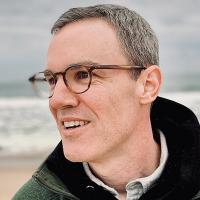
Manus Patten
Modeling Agency Formally
The paradox of the organism
Subaward Principal Investigator
Georgetown University
Manus Patten is a teaching professor in the Department of Biology at Georgetown University. He takes a theoretical approach to studying evolutionary genetics and is especially interested in conflict, cooperation, and the levels of selection.
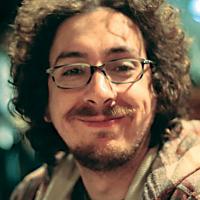
Davide Pisani
Higher-Level Agency and Directionality in Ecology and Earth Science
Chance versus purpose in biosphere evolution
University of Bristol
Davide Pisani is Professor of Phylogenomics at the University of Bristol. He obtained his undergraduate degree at the University of Parma (Italy), and his PhD at the University of Bristol. After that, he worked at Pennsylvania State University, the Natural History Museum in London and the National University of Ireland Maynooth. He has been a member of the NASA Astrobiology Institute, and his research focus on major evolutionary transitions, using the origin of the eukaryotic cells, of animals and processes of colonisation of land as models.
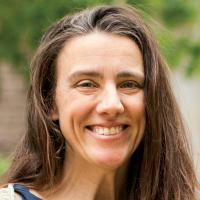
Anya Plutynski
Agency and Directionality in Development
Cluster Coordinator
Washington University in St. Louis
Professor Plutynski is a historian and philosopher of biology and medicine. Her most recent book is Explaining Cancer: Finding Order in Disorder (2018, OUP). She has also written on the history and philosophy of evolutionary biology and genetics, the role of modeling in science, and scientific explanation. Other research interests include biomedical research ethics, particularly issues surrounding precision oncology, cancer genomics, and risk communication.
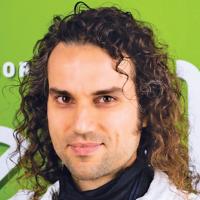
Arnaud Pocheville
(Re)Conceptualizing Function and Goal-Directedness
Open-ended evolution and organizational closure
Subaward Principal Investigator
Arnaud Pocheville is a theoretical biologist and philosopher of science whose research concentrates on issues in evolutionary biology, including topics such as the structure of evolutionary time and the notion of biological information. His aim is to clarify current theoretical controversies (e.g. between niche construction theory and the extended phenotype perspective), such as by showing that the competing perspectives implicitly posit different hypotheses about the time-scale separability of the diverse biological phenomena they claim to consider (mostly development, ecology and evolution). He completed his PhD on the ecological niche concept at the laboratory Ecology and Evolution, École Normale Supérieure, Paris and held postdoctoral research positions in Theory and Methods in Biosciences group at the University of Sydney and at the Center for Philosophy of Science, University of Pittsburgh. He is currently a permanent research fellow at the French National Centre for Scientific Research (CNRS).
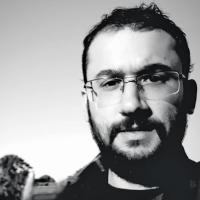
Claudio Reis
Higher-Level Agency and Directionality in Ecology and Earth Science
An organizational account of ecological functions
Claudio Ricardo Martins dos Reis is Associate Professor of History and Philosophy of Biology at the Institute of Biology, Federal University of Bahia, Brazil. Member of the History, Philosophy, and Biology Teaching Lab (LEFHBio) and the National Institute of Science and Technology in Interdisciplinary and Transdisciplinary Studies in Ecology and Evolution (INCT IN-TREE). He works in the areas of philosophy of science, especially of biology, and the areas of ecology and science education research.
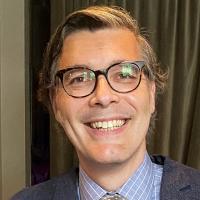
Thomas Reydon
Agential Behavior and Plasticity in Evolution
Agency and explanation in the evolutionary sciences
Subaward Principal Investigator
Leibniz University Hannover
Thomas Reydon is Professor of Philosophy of Science and Technology in the Institute of Philosophy and the Centre for Ethics and Law in the Life Sciences (CELLS) at Leibniz University Hannover, Germany. He is also Associated Faculty in the Socially Engaged Philosophy of Science (SEPOS) group at Michigan State University. He is a founding member and Board Member of the German Society for Philosophy of Science (GWP), a Steering Committee member of the European Advanced Seminar of the Philosophy of the Life Sciences (EASPLS), a co-Editor in Chief of the Journal for General Philosophy of Science, a co-Editor in Chief of the book series History, Philosophy and Theory of the Life Sciences, and a former Associate Editor of the journal Acta Biotheoretica. His research focuses on evolutionary explanation; applications of evolutionary thinking in and outside the biological sciences; natural history; classification, classificatory concepts & natural kinds; and good academic practice.
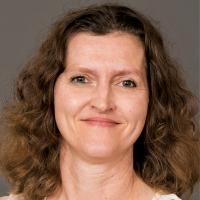
Gillian Roehrig
(Re)Conceptualizing Function and Goal-Directedness
‘Function’ in biology and bio-inspired design
University of Minnesota
Dr. Gillian Roehrig is a professor of STEM Education at the University of Minnesota. She received her PhD in Science Education from the University of Arizona in 2002. Her research explores issues of professional development for K-12 science teachers, with a focus on implementation of integrated STEM learning environments and induction and mentoring of beginning secondary science teachers. Her work in integrated STEM explores teachers' conceptions and implementation of STEM, curriculum development, and student learning in small groups during STEM lessons. She has received over $50 million in federal and state grants and published over 130 peer-reviewed journal articles and book chapters. She is a former president of the Association for Science Teacher Education and currently serves as president-elect of NARST. She is the recipient of the 2020 ASTE Outstanding Science Teacher Educator Award.
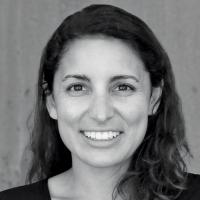
Jessica Rossi-Mastracci
(Re)Conceptualizing Function and Goal-Directedness
‘Function’ in biology and bio-inspired design
University of Minnesota
Jessica is an Assistant Professor of Landscape Architecture at the University of Minnesota, and the Kusske Design Initiative (KDI) Co-Principal for 2021–2023. KDI aims to connect individuals across design disciplines to co-create solutions to global issues through the lens of environmental stewardship, using dialogue, interdisciplinary inquiry, and collaboration as methods of inquiry. In her work, Jessica investigates new ways of adapting to future unknown conditions in extreme landscapes, with a focus on infrastructure, materiality, and ephemerality. She teaches in landscape construction, infrastructure and systems, advanced planning and design, digital representation, and graduate design studios.
